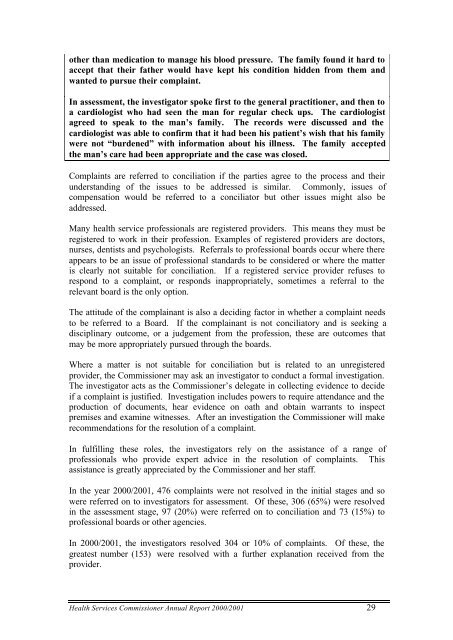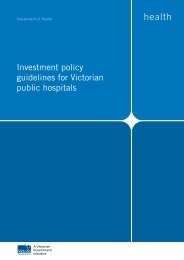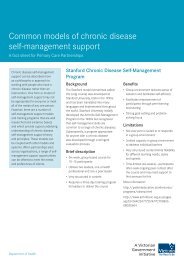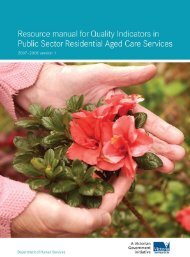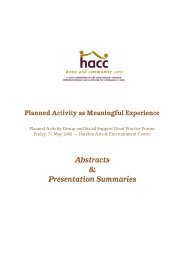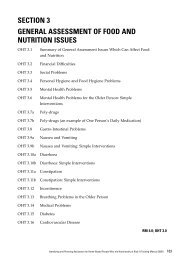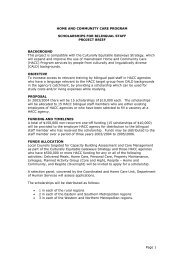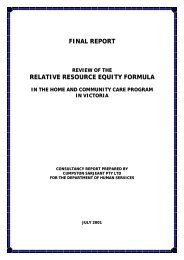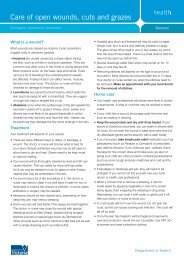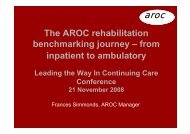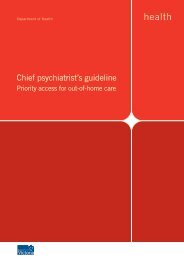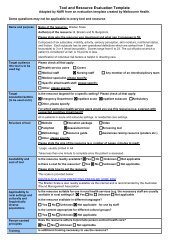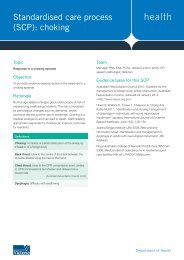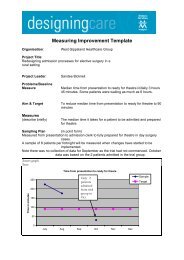Health Services Commissioner Annual Report 2000/2001
Health Services Commissioner Annual Report 2000/2001
Health Services Commissioner Annual Report 2000/2001
Create successful ePaper yourself
Turn your PDF publications into a flip-book with our unique Google optimized e-Paper software.
other than medication to manage his blood pressure. The family found it hard to<br />
accept that their father would have kept his condition hidden from them and<br />
wanted to pursue their complaint.<br />
In assessment, the investigator spoke first to the general practitioner, and then to<br />
a cardiologist who had seen the man for regular check ups. The cardiologist<br />
agreed to speak to the man’s family. The records were discussed and the<br />
cardiologist was able to confirm that it had been his patient’s wish that his family<br />
were not “burdened” with information about his illness. The family accepted<br />
the man’s care had been appropriate and the case was closed.<br />
Complaints are referred to conciliation if the parties agree to the process and their<br />
understanding of the issues to be addressed is similar. Commonly, issues of<br />
compensation would be referred to a conciliator but other issues might also be<br />
addressed.<br />
Many health service professionals are registered providers. This means they must be<br />
registered to work in their profession. Examples of registered providers are doctors,<br />
nurses, dentists and psychologists. Referrals to professional boards occur where there<br />
appears to be an issue of professional standards to be considered or where the matter<br />
is clearly not suitable for conciliation. If a registered service provider refuses to<br />
respond to a complaint, or responds inappropriately, sometimes a referral to the<br />
relevant board is the only option.<br />
The attitude of the complainant is also a deciding factor in whether a complaint needs<br />
to be referred to a Board. If the complainant is not conciliatory and is seeking a<br />
disciplinary outcome, or a judgement from the profession, these are outcomes that<br />
may be more appropriately pursued through the boards.<br />
Where a matter is not suitable for conciliation but is related to an unregistered<br />
provider, the <strong>Commissioner</strong> may ask an investigator to conduct a formal investigation.<br />
The investigator acts as the <strong>Commissioner</strong>’s delegate in collecting evidence to decide<br />
if a complaint is justified. Investigation includes powers to require attendance and the<br />
production of documents, hear evidence on oath and obtain warrants to inspect<br />
premises and examine witnesses. After an investigation the <strong>Commissioner</strong> will make<br />
recommendations for the resolution of a complaint.<br />
In fulfilling these roles, the investigators rely on the assistance of a range of<br />
professionals who provide expert advice in the resolution of complaints. This<br />
assistance is greatly appreciated by the <strong>Commissioner</strong> and her staff.<br />
In the year <strong>2000</strong>/<strong>2001</strong>, 476 complaints were not resolved in the initial stages and so<br />
were referred on to investigators for assessment. Of these, 306 (65%) were resolved<br />
in the assessment stage, 97 (20%) were referred on to conciliation and 73 (15%) to<br />
professional boards or other agencies.<br />
In <strong>2000</strong>/<strong>2001</strong>, the investigators resolved 304 or 10% of complaints. Of these, the<br />
greatest number (153) were resolved with a further explanation received from the<br />
provider.<br />
<strong>Health</strong> <strong>Services</strong> <strong>Commissioner</strong> <strong>Annual</strong> <strong>Report</strong> <strong>2000</strong>/<strong>2001</strong> 29


